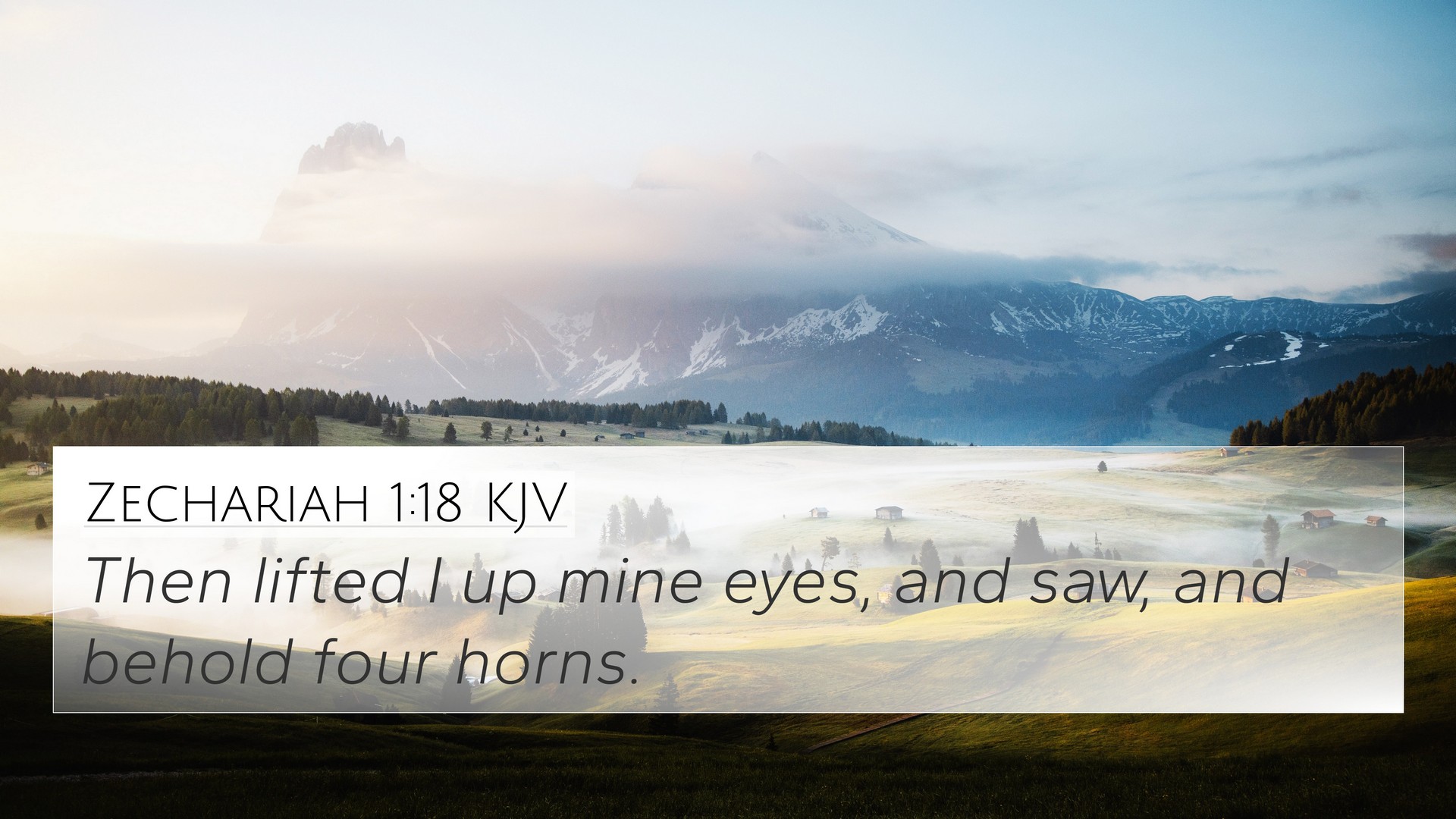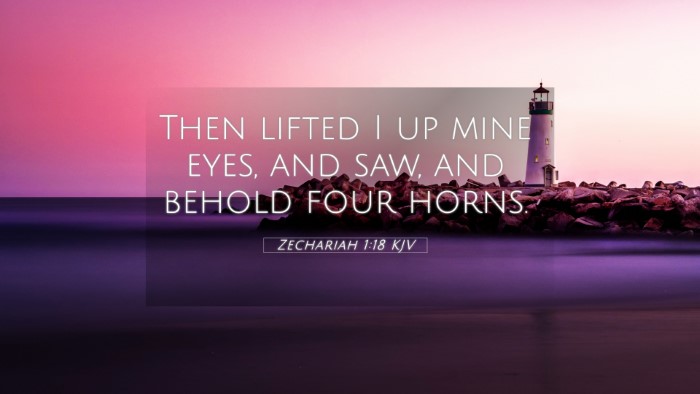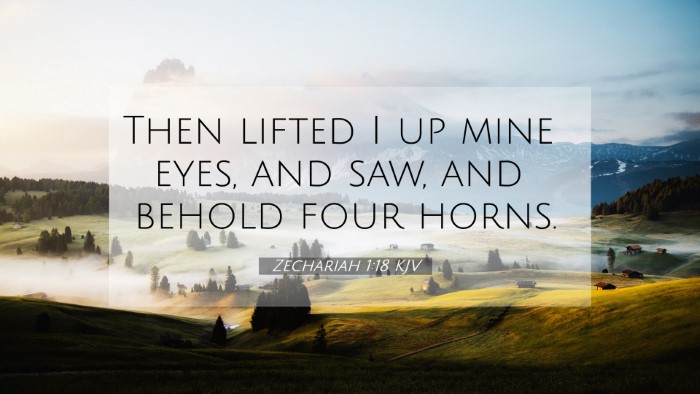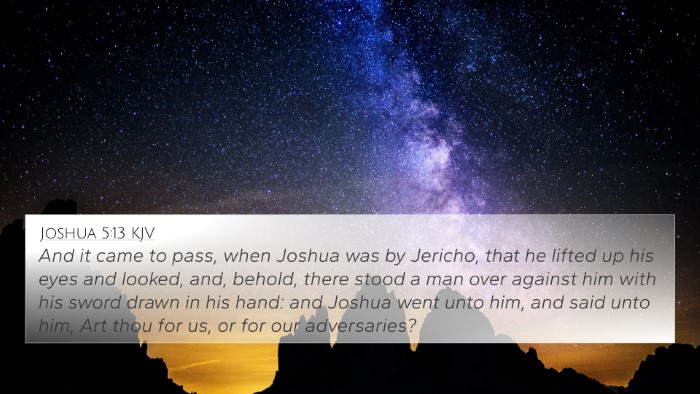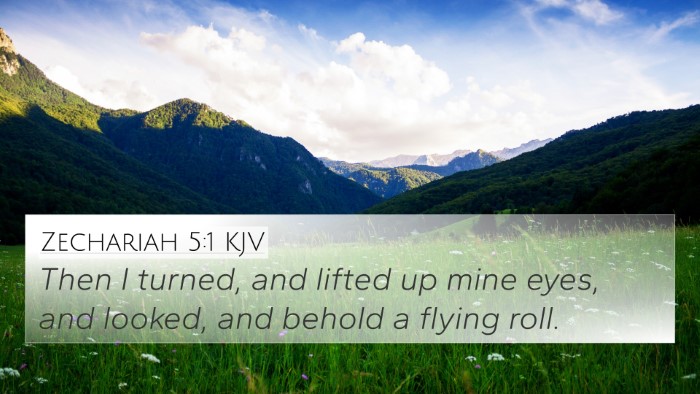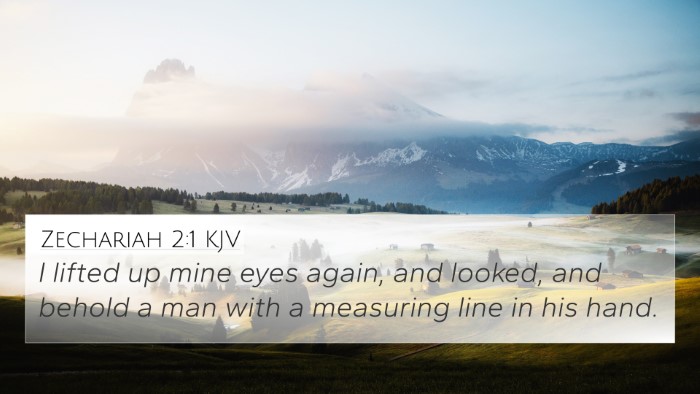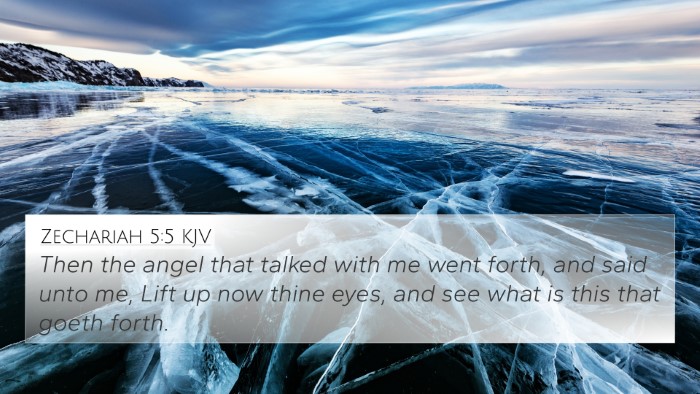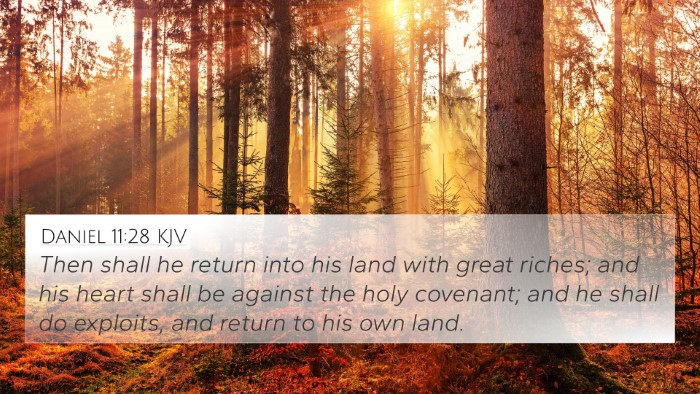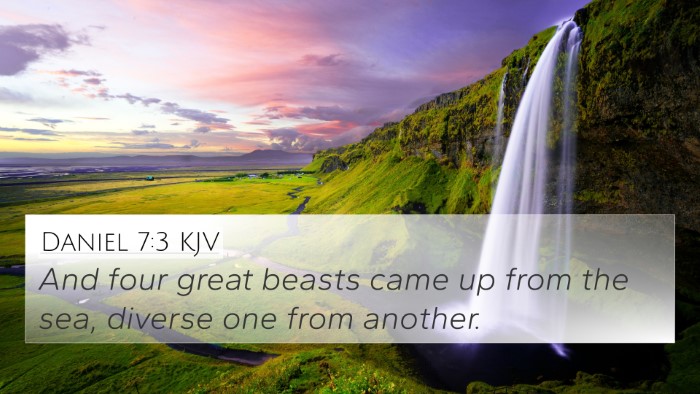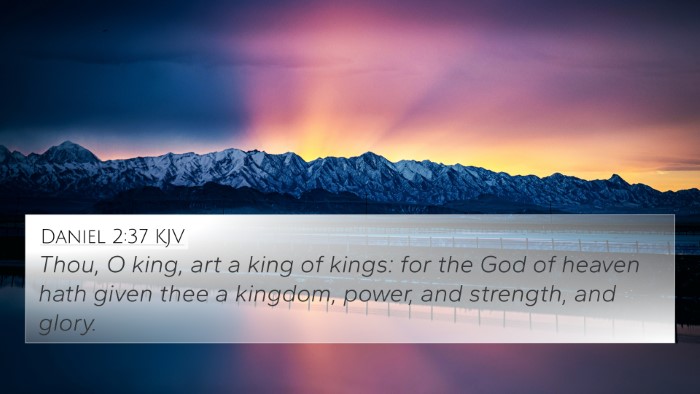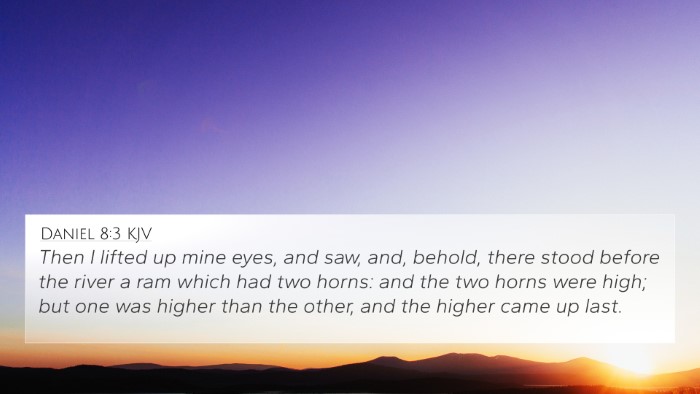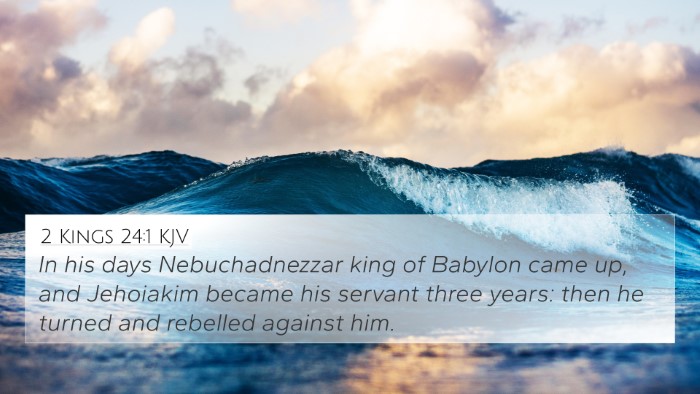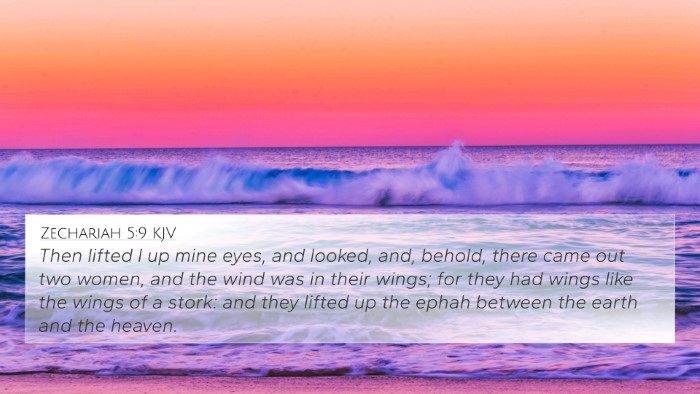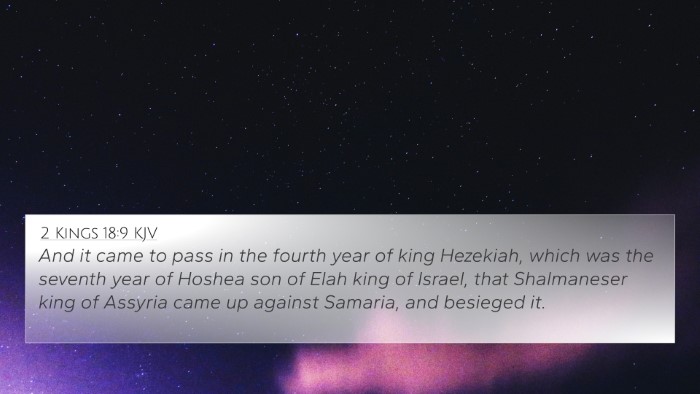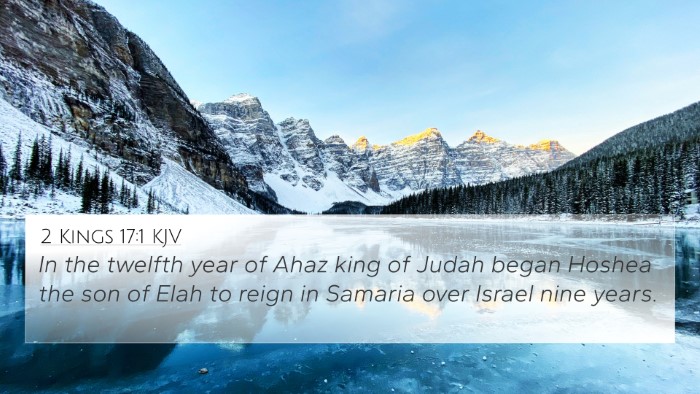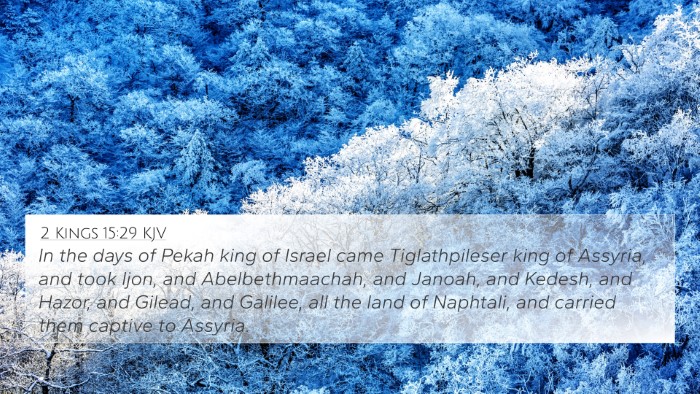Understanding Zechariah 1:18
Zechariah 1:18 states, "Then lifted I up mine eyes, and saw, and behold four horns." This verse introduces a prophetic vision seen by Zechariah that serves as a crucial moment in the unfolding narrative of Israel's restoration.
In examining this verse, we delve into its historical context, theological implications, and connections to other Scripture. The insights provided by notable public domain commentaries enrich our understanding and reveal the layered meanings of this profound verse.
Historical Context
Zechariah, a post-exilic prophet, addresses the Jewish people who returned from Babylonian captivity. The imagery of horns in this passage symbolizes power, strength, and nations opposing Israel. The vision represents God's assurance that, despite their struggles, He will protect and restore them.
Theological Significance
The horns in Zechariah 1:18 are emblematic of the nations that have scattered God's people. This evokes themes of divine justice and the eventual triumph of God’s sovereignty over hostile forces. Both Matthew Henry and Albert Barnes emphasize that this prophetic message reassures Israel of God's ultimate plan to revive His people and diminish their enemies.
Cross References
Zechariah 1:18 has several significant biblical cross-references that further illuminate its meaning:
- Jeremiah 51:20: "Thou art my battle axe and weapons of war: for with thee will I break in pieces the nations." This parallels the theme of God using Israel as an instrument against adversaries.
- Daniel 7:7: "After this I saw in the night visions, and behold a fourth beast, dreadful and terrible." This verse connects with the concept of powerful kingdoms opposing God’s people.
- Psalms 75:10: "All the horns of the wicked also will I cut off; but the horns of the righteous shall be exalted." This reinforces God's authority over the powerful nations symbolized by horns.
- Micah 4:13: "Arise and thresh, O daughter of Zion: for I will make thine horn iron." This relates to the theme of empowerment and victory for Israel.
- Revelation 17:12: "And the ten horns which thou sawest are ten kings." This expands the imagery of horns to reflect on end-time events and kingdoms.
- Isaiah 54:17: "No weapon that is formed against thee shall prosper." This promise of protection echoes throughout the biblical narrative, supporting the comfort offered in Zechariah.
- Exodus 15:6: "Thy right hand, O Lord, is become glorious in power: thy right hand, O Lord, hath dashed in pieces the enemy." This speaks to God’s power in rendering judgment against Israel's enemies.
Comparative Analysis
A comparative study of the surrounding verses and the themes present in Zechariah highlights the prophetic continuity found in scripture. Adam Clarke discusses the symbolism of horns and their implications for understanding God's governance over nations, recognizing the urgency of Israel's faith during desolation.
Conclusion
In summary, Zechariah 1:18 serves as a critical prophetic declaration, infused with rich symbolism and profound implications for the Jewish people post-exile. The four horns signify the various powers that threaten God's people, while also representing His sovereignty and promise of restoration—stressing the importance of faith amid adversity.
Understanding this verse in conjunction with its biblical cross-references reveals its depth and encourages a holistic approach to scriptural study. Tools for Bible cross-referencing and a deep dive into biblical concordances can further aid in identifying the connections between this and other significant passages.
